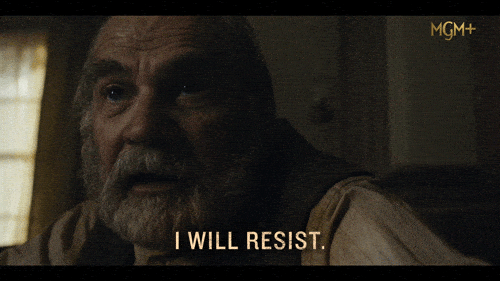Work is always so much more fun than fun.
Howdy, this is UniScoops! We're like your favourite playlist — just full of absolute bangers!
So, without further ado…
Here’s a taste of what we’re serving today:
Unravelling antibiotic resistance and how we can tackle it 💊
PLUS: Becoming Human, Photographing Ghosts, and Finding Planets 🪐
MEDICINE
Unravelling antibiotic resistance and how we can tackle it 💊

Antibiotic resistance is one of the biggest threats to global health in the modern era and can affect anyone of any age. Since antibiotics were discovered in the early 20th century as medicines to prevent and treat bacterial infections, bacteria have developed mechanisms to change and adapt their genome (set of genes) which allows them to evade the effects of the drugs. Antibiotics cause a selection pressure which drives natural selection, continually making antibiotic resistance worse over time as the bacteria ‘learn’ what they must do to survive. If these bacteria happen to infect you, resistance then becomes a major issue in treating infections like pneumonia and tuberculosis.
💡 Things to consider
Horizontal gene transfer: This is an incredibly important process that helps bacteria to change their genome and build resistance. Genetic recombination (swapping genes) occurs between cells of the same generation, producing different variants of their parent cells. The 3 ways in which this can occur are conjugation (via direct cell to cell contact), transduction (between bacteria and a bacteriophage) and transformation (from the surroundings). Consider how this helps antibiotic resistance to spread between bacteria.
Resistance to different antibiotic types: Bacteria become resistant to different types of antibiotics in different ways, helping them to become very specifically resistant to that drug type. For example, they can become resistant to aminoglycoside antibiotics (e.g. tetracycline) by chemically modifying (adding bits onto) the antibiotic. Meanwhile, penicillin resistance appears in MRSA bacteria if the bacteria cleverly alters one of its cellular components to prevent the antibiotic from binding to it and exerting its effect (read more about the global problem of MRSA below). MRSA is a particular problem in hospitals and care homes so how do you think we should go about preventing and treating it?

Bacteria when it sees antibiotics
Tackling resistance: So considering all of these issues above, it seems pretty important that we stop this, right? Well, it’s easier said than done. Firstly, it’s really important that people only take antibiotics when they’ve been prescribed by a health professional, as taking them at other times can help the bacteria learn how to become resistant. It’s also essential that we finish any course of antibiotics we’re given to ensure that all of the bacteria have been killed and can’t start to re-populate! There’s also some more technical methods available to tackle antibiotic resistance. New antibiotics that are effective at treating antibiotic resistant bacteria are being developed (e.g. Teixobactin for MRSA) and phage therapy, in which bacteriophages are used to kill bacteria, is on the rise.

Who knew bacteriophages looked so cool?!
🔎 Find out more

🍒 The cherry on top
🐒 Becoming Human: Journey through time to discover the fossils and science behind how our ancestors evolved from seven million years to the present. This website gives you an interactive timeline of the history of humans, as well as games and activities on the concepts of human evolution. Great if you’re into Biology or Archaeology!
👻 Photographing Ghosts: Can you photograph Ghosts? William Hope claimed to be able to document the visitations of ghosts. The controversial images he produced add to our understanding of the history of photography. Give this a read if you’re into Photography or History.
🪐 Finding Planets: How do scientists go about finding planets beyond our solar system? Check out this site by NASA and find out more about five ways they do it! Great if you’re into Physics.

👀 Keep your eyes peeled for…
28th October
29th October:
30th October:
31st October:
1st November:

🗳️ Poll
How was today's email?
That’s it for this week! We’d like to thank this week’s writer: Abi Vukashin.
💚 Like UniScoops?
Forward this edition to someone who’d love to read it for extra kudos!
📢 Want to tell us something?
Reply to this email to tell us what you think about UniScoops, or to give us any suggestions on what you’d like to see.
🧐 New to UniScoops?
Get your weekly fix of academia with our fun, thought-provoking newsletter. No jargon, no fluff, just the good stuff. Subscribe today.

